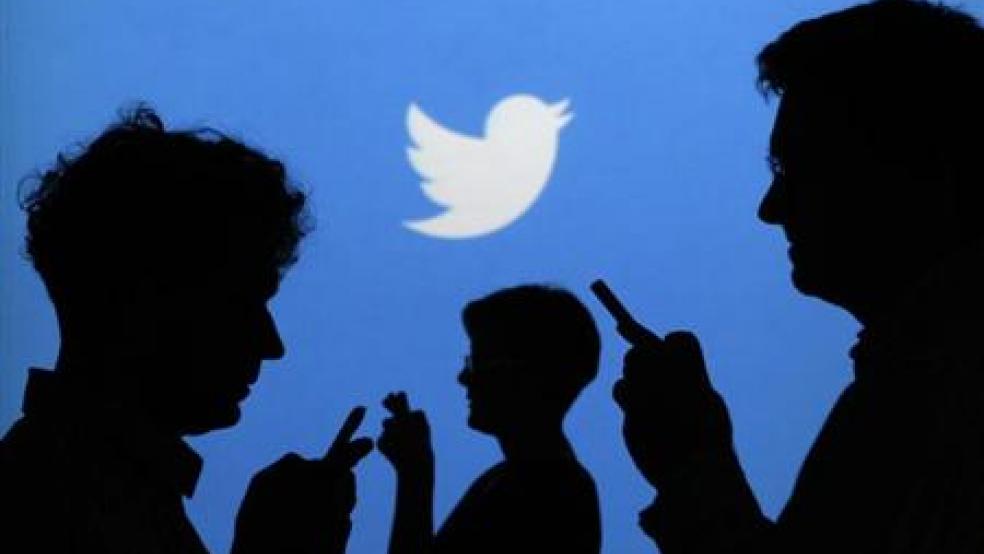Sen. Chuck Grassley of Iowa, one of the most influential senior Republicans on Capitol Hill, rode in a car that struck a deer on Highway 136 just south of Dyersville, Iowa, back in October 2012. Grassley got out of the car, inspected the damage, pulled back a fender that was rubbing against a tire, and then resumed his trip.
We know this because Grassley tweeted the news to the world: “Assume deer dead,” he dryly noted.
Related: Investigators Probe Clinton’s Hiring Practices While at State
We have learned plenty more about Grassley over the years thanks to his enthusiastic participation on social media. Grassley is just one example of lawmakers who might be better served if there was a filter between them and their social media accounts.
The chair of the Judiciary Committee and senior member of the Agriculture, Finance and Budget committees likes Dairy Queen, occasionally works on his family farm, and constantly worries about deer in his headlights. He is also extremely comfortable spouting his conservative views on practically any topic anywhere. He once called President Obama “stupid.”
His Twitter account was especially amusing during the 2012 presidential campaign when he shared his insights on the Republican nominee Mitt Romney in an unforgettably jumbled Tweet.
Evrybody asking how Romney"relates"to avg person Me thinks"no problem" but if so I hv answer "just lv starch out of shirt"
— ChuckGrassley (@ChuckGrassley) February 4, 2012
Alex Goldman, producer for On the Media, just recently recalled some of Grassley’s greatest hits, adding that “He has one of the craziest Twitter feeds I’ve ever seen.”
This begs the question whether some lawmakers should simply be barred from having access to a Twitter account, if for no other reason to protect them from themselves.
Since the dawn of social media, scores of House and Senate members have succumbed to the conceit that there is a large, receptive audience out there for just about any random thought or idea that pops into their heads.
Look no further than the annual State of the Union address, where lawmakers are particularly itching to take to social media to share their drivel and fatuous comments with the world.
Just last January, Rep. Steve King (R-Iowa) lashed out at Obama via Twitter only hours before the president’s speech, referring to an undocumented immigrant scheduled to sit with First Lady Michelle Obama during the speech as “a deportable.”
Related: Here’s Why Obama and Congress’ Approval Ratings Are Up
#Obama perverts "prosecutorial discretion" by inviting a deportable to sit in place of honor at #SOTU w/1st Lady. I should sit with Alito.
— Steve King (@SteveKingIA) January 20, 2015
Many lawmakers are constantly mocked by the Twittersphere for their attempt to be hilarious or at least amusing on social media. For one, there’s Rep. Darrell Issa (R-CA), the former chair of the House Oversight and Government Reform Committee, who until recently routinely posted a #FridayKitty picture of an adorable kitten gif, because that’s what elected officials do now apparently. Other notables include 88-year-old former Rep. John Dingell (D-MI), who Buzzfeed dubbed “probably the best person on Twitter” for routinely tweeting jokes and memes.
Then there are the politicians whose careers were destroyed because of how they chose to use social media. Former Rep. Anthony Weiner (D-NY), for example, provided one of the first demonstrations in what not to do on Twitter, when he sent lewd photos of himself to one of his Twitter followers. Not surprisingly, that prompted a scandal and hastened the demise of his political career.
Related: Aaron Schock May Still Get a Gov’t Pension When He’s 62
More recently, embattled former Rep. Aaron Schock’s Instagram account helped reporters piece together an evolving scandal surrounding how the young congressman may have abused campaign and taxpayer dollars. The Illinois Republican unwisely instagrammed a spate of exotic excursions around the world---some of which were funded by taxpayers and campaign donors.
And so it goes.
Earlier this month, the United States Office of Government Ethics issued a detailed “standards of conduct” advisory for executive branch government employees and agencies in using social media. The bottom line was that while employees are not prohibited from establishing and maintaining personal social media accounts, they should be cautious in what they say and do.
“When employees are on-duty, the Standards of Conduct require that they use official time in an honest effort to perform official duties, wrote David J. Apol, the general counsel. “As a general matter, this requirement limits the extent to which employees may access and use their personal social media accounts while on duty.”
The memo doesn’t apply to members of Congress. But maybe it’s time to rein in the social media excesses of federal lawmakers. Or at least suggest that more members let their younger millennial staffers take the wheel.
Top Reads from The Fiscal Times






